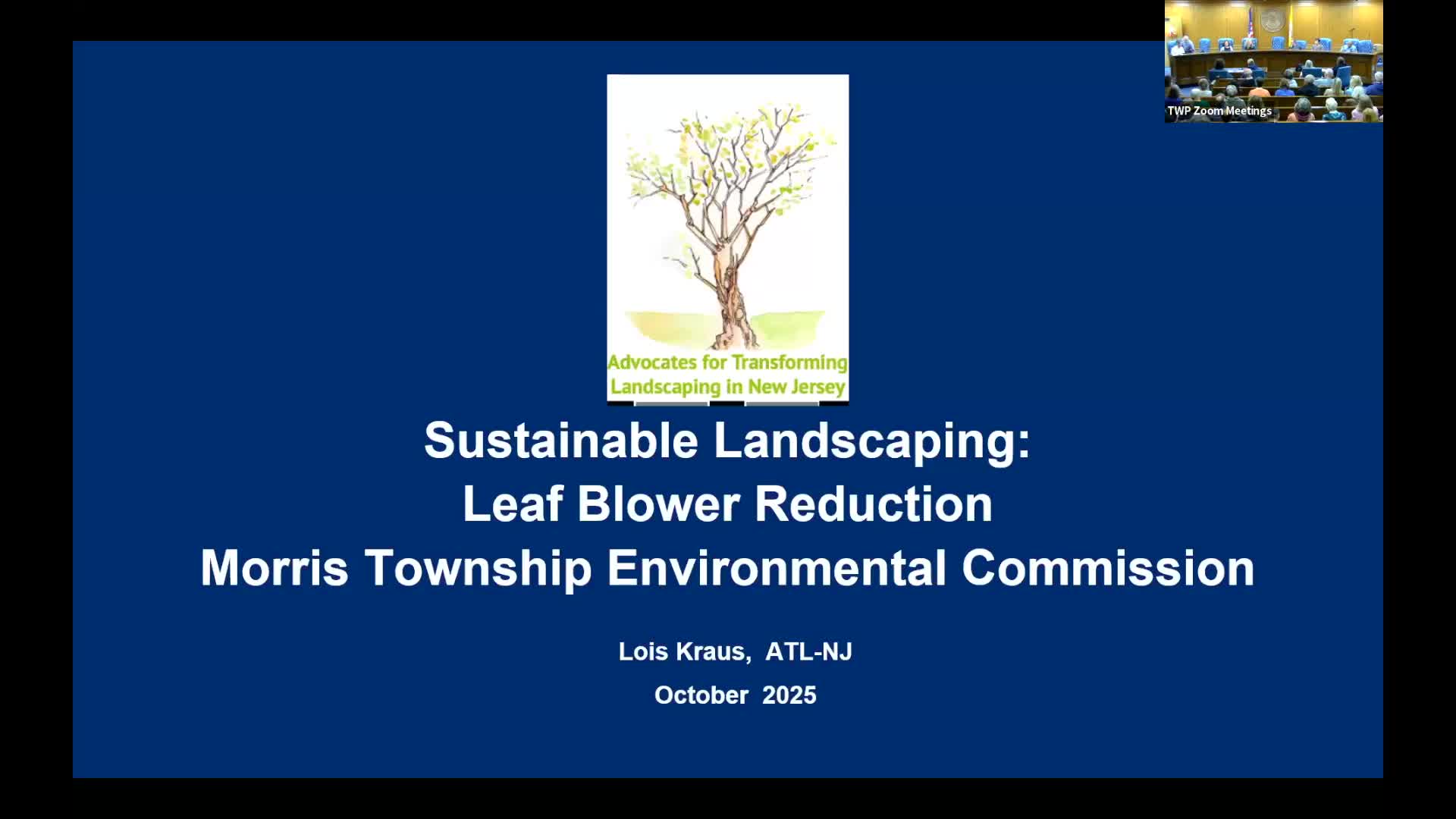Advocates press for limits on gas-powered leaf blowers, propose rebates and seasonal bans
Get AI-powered insights, summaries, and transcripts
Subscribe
Summary
An advocacy presentation detailed health, noise and environmental harms from two-stroke gas-powered leaf blowers, described local municipal ordinances, and outlined state-level rebate proposals to help landscapers switch to electric equipment.
Lois Krause, founder of Advocates Transforming Landscaping in New Jersey, told a Morris Township audience that two-stroke gas leaf blowers pose public-health, environmental and quality-of-life problems and urged local and statewide action to limit their use.
Krause said many handheld and backpack blowers are two-stroke engines that burn a gas-and-oil mix and emit fine particulate matter, volatile organic compounds including benzene, and other toxic byproducts. She noted operators and nearby residents inhale these particulates and described noise impacts: many blowers exceed 85 decibels, and low-frequency waves travel far beyond the operator and can be felt as vibration. "I am of the philosophy that you blow when you have to and you blow wisely," Krause said, recommending battery-powered alternatives for most tasks, tarps or collection for fall cleanups, and limited use where leaf volume requires heavier equipment.
Krause listed municipalities with some form of blower regulation — she named Maplewood and Montclair as full bans and cited Princeton, South Orange, Millburn, Glen Ridge and Morris Township as having restrictions or seasonal rules — and said her group has worked with Sen. Smith and Assemblywoman Swain on legislation that would provide rebates to landscapers to encourage equipment transition. She said the bills passed environmental committee stages but were on hold and expected to be reintroduced.
On practical alternatives, Krause advised homeowners and landscapers to separate full fall cleanup from routine season-long maintenance, use battery blowers or leave leaves in place where feasible, and to adopt "sensible leaf blowing" rules in towns with heavy deciduous cover. She also highlighted social-justice issues: many landscapers lack hearing protection or insurance and rely on this equipment for livelihood, so rebate and buyout programs can ease transitions.
Panelists and audience members discussed options for local adoption (seasonal bans, restrictions on hours or allowable equipment), enforcement considerations and tradeoffs where large properties or storm-drain concerns exist. Krause recommended advocacy at the municipal level and repeated that multiple towns in the region already have ordinances while a statewide approach is being pursued.
"They are, number one, a public health issue," Krause said, summarizing the argument for limits and for helping small landscaping businesses move to quieter, lower-emissions equipment.
No municipal votes or formal actions were taken at the meeting; panelists provided resources and encouraged residents to use a printed landscaper checklist and to contact local officials about ordinances and rebate programs.
